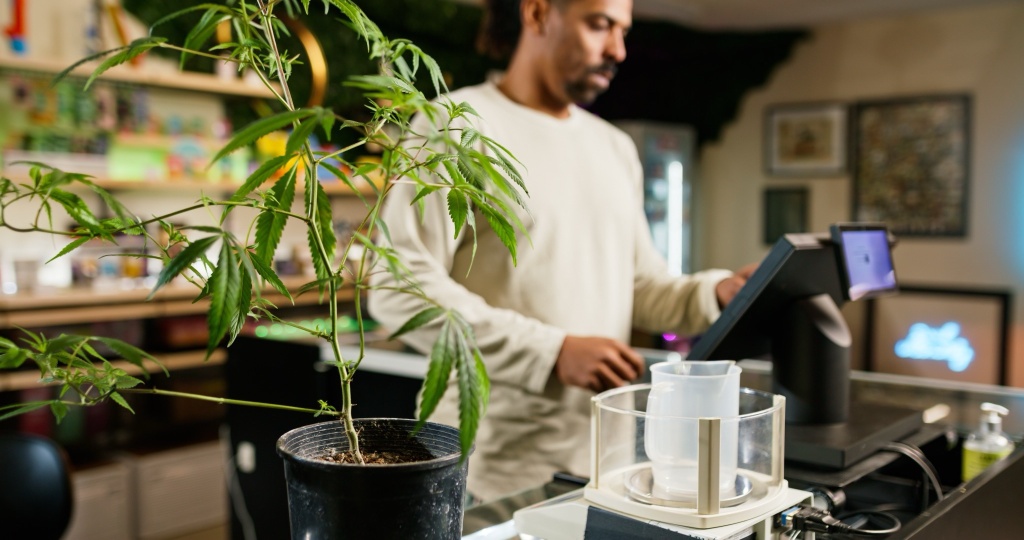AI could revolutionize cannabis retail — most stores aren’t ready

Retailers across industries, from grocery to apparel to cannabis, are now using artificial intelligence (AI) to drive smarter business decisions. In cannabis, where margins are tight and regulations are complex, AI is transforming how retailers manage inventory, engage customers, ensure compliance, and make strategic decisions around marketing and labor.
RELATED: AI won’t replace relationships in cannabis, but it may make them stronger
But AI cannot operate in isolation; Its power depends entirely on the systems it connects to and the quality of data it receives. For cannabis retailers, this means that the long-standing debate between open API tech stacks and all-in-one platforms like Sweed is no longer just about preference; it’s now about functionality.
The evolution of AI in cannabis retail
For years, cannabis retailers have weighed the benefits of open API point-of-sale systems against more centralized, all-in-one platforms. Open API systems offer flexibility, enabling integration with specialized third-party services for e-commerce, loyalty programs, inventory, and more.
This modular approach allowed retailers to build a tech stack tailored to specific operational needs. This was especially valuable over the past 10 years as more technology became available to the cannabis market. The thoughts around all-in-one systems were that they might lack depth in individual features, sacrificing performance for consolidation.
RELATED: From guesswork to growth: the role of data in cannabis cultivation
That conversation is now shifting dramatically in favor of all-in-one systems with the emergence of AI. Having a fragmented tech stack with disconnected tools creates blind spots. AI requires access to the full picture to function effectively.
If a retailer’s POS, inventory system, loyalty platform, and marketing software live in separate environments, the result is fragmented data and missed opportunities. These silos not only slow down operations but severely limit AI’s ability to deliver insights that go beyond the obvious. What matters most today is real-time connectivity and clean, structured data.
A critical inflection point…
Retailers now face a critical inflection point because, without AI, retailers are going to fall behind. AI is not a tool that operates in isolation; it thrives on integrated, up-to-date data drawn from across the business.
When systems cannot communicate, AI cannot generate the kind of cross-functional intelligence that drives results. Predictive inventory tools are less accurate, personalization engines deliver generic recommendations, and compliance monitoring becomes reactive rather than preventative. Without full visibility into the business, AI remains limited to surface-level analysis.
RELATED: Is cannabis branding a waste of money—or the key to survival?
The value of AI lies in its ability to help retailers do more with less. It can identify which products need to be reordered based on sales history, seasonal holidays, and forecasted demand. It can flag inventory that is at risk of aging out. It can segment customers by behavior and automatically generate personalized offers that convert. It can even detect compliance risk by identifying suspicious transaction patterns or supply chain irregularities.
AI can help retailers overcome many of the hurdles to profitability, including the unpredictable nature of customer purchasing decisions, price compression of flower, and the high cost of labor.
Are you ready for the AI revolution?
There is no denying that AI is going to eventually change how most, if not all, businesses operate. As AI adoption accelerates, the cannabis retailers poised to win are not necessarily the ones with the flashiest tools, but those with a unified cannabis retail operating system where point of sale, marketing, e-commerce, inventory, and reporting tools share the same data model.
With this function, every action feeds into a shared system, where AI can process data in real time and deliver insights that are contextual, relevant, and actionable. The result is not just automation, but smarter business decisions made faster and with greater confidence.
RELATED: The hidden trap sinking cannabis shops everywhere
Leveraging the full power of AI is about rethinking how data is captured, stored, and analyzed to create value across the entire retail operation. With AI becoming central to retail performance, siloed systems are no longer about preference or having a customizable stack; they are about delivering optimal performance. The future of cannabis retail will not be defined by who has the most tools, but by who has the smartest infrastructure to put those tools to work.
*This article was submitted by a guest contributor. The author is solely responsible for the content.